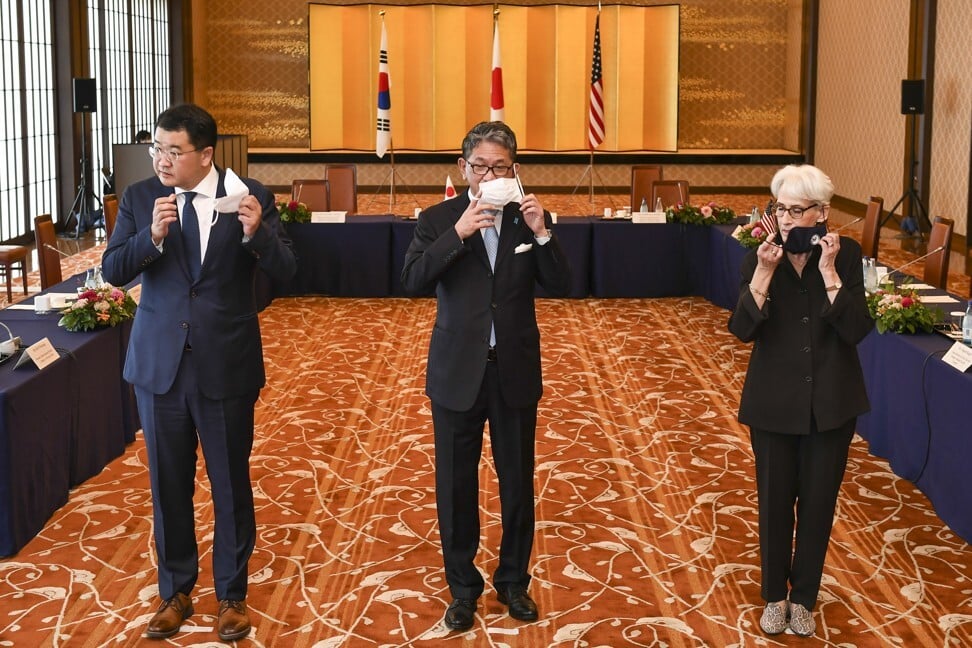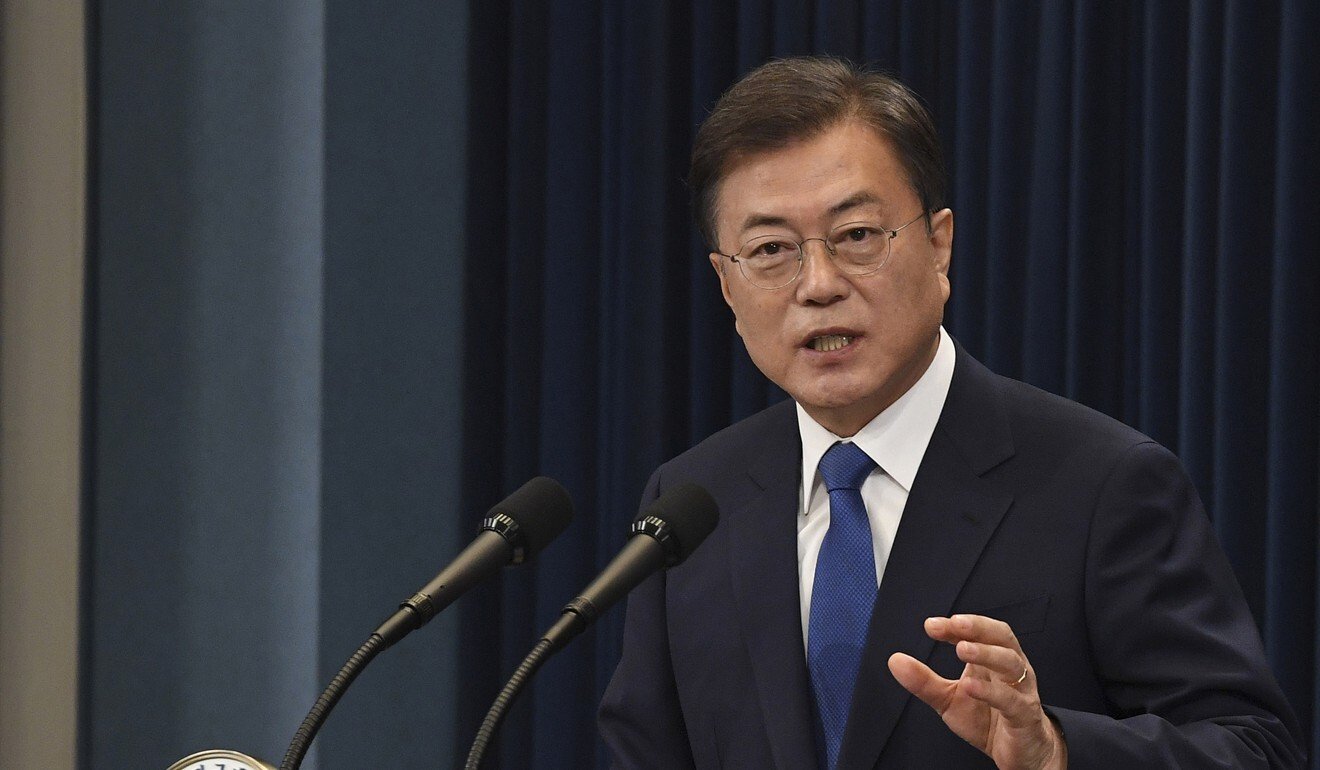
US, Japan and South Korea present united front against North Korea despite rift between Asian allies
- Wendy Sherman, the US deputy secretary of state, on Wednesday met with her counterparts Takeo Mori and Choi Jung-kun in Tokyo
- Sherman said the three countries ‘are together and shoulder-to-shoulder’ in their policies to contain North Korea and its weapons programmes
“That close coordination sends a very critical message to North Korea in that we are together and shoulder-to-shoulder in our approach to this policy,” Sherman told reporters after meeting the vice foreign ministers of Japan and South Korea in Tokyo.
At the Chinese Foreign Ministry’s regular press briefing on Wednesday, spokesman Zhao Lijian said the mention of Taiwan showed that the US and Japan were “sticking to the Cold War mentality, deliberately engaging in group confrontation and trying to create anti-China encirclement”.
This went against what most countries in the region wanted, which was peace, development and cooperation, he added.
US State Department says No 2 official could still meet with Chinese counterparts
Speaking to reporters, Sherman sidestepped questions about whether her eight-day trip to Asia, which also includes stops in South Korea and Mongolia, would take her to China. She said she had no updates on the itinerary of her trip, adding: “We’ve been clear we will engage when it is in our interests, and will do so in a practical, substantive and direct manner – that remains the case.
“If we have updates to my travel, we will be sure to share them. And you will certainly know.”
Mori said trilateral cooperation with the US was crucial for the denuclearisation of North Korea.
“North Korea’s next move is unpredictable,” he said.

Choi described the North Korea nuclear issue as “a long game” that needed patience. Sherman said the US was “ready to engage with North Korea and they know that”.
“We hope they will respond positively, but as my colleagues have said, we must exercise some patience, perhaps not too much, but some,” Sherman said.
The trio also committed to deepening trilateral cooperation to address the global challenges of the 21st century, including the climate crisis, pandemic response, and economic resilience and recovery.
Amid US-China rivalry, Asian countries are stockpiling powerful new missiles
Sherman did not refer directly to the recent tension between Japan and South Korea. Mori said that issue was not discussed at the trilateral meeting.
Ties between Seoul and Tokyo have been at the lowest ebb in many years since Japan imposed export restrictions on South Korea in 2019 as retaliation against Seoul court decisions in favour of South Korean victims of wartime sexual slavery and other forced labour under Japanese colonial rule.

“We have long encouraged the ROK [South Korea] and Japan to work together on history-related issues in a way that promotes healing and reconciliation.”
Price reiterated that the US supports the 2015 agreement between Japan and South Korea, which established a 1 billion yen (US$9.1 million) fund, bankrolled by Tokyo, to compensate South Korean women forced into sexual slavery by Japanese troops.
South Korea’s 2022 election could reshape its US-China balancing act
The agreement was signed by the government of former president Park Geun-hye, reportedly under pressure from Washington. Moon’s government in effect ditched the agreement, claiming it was not endorsed by victims themselves.
“As we stated at the time in 2015, we welcome efforts such as the 2015 agreement between the two countries as an example of their commitment to forging a more productive and constructive bilateral relationship,” Price said. “Even while addressing sensitive historical questions, cooperation on our common regional and international priorities must proceed.”
Japanese and South Korean senior diplomats reiterated that their countries would continue dialogue to resolve outstanding issues.
Choi said South Korea was “deeply impressed” by Japan’s efforts to host the Olympics during the coronavirus pandemic, adding that he, Sherman and Mori had agreed to meet regularly.
Additional reporting by Bloomberg


